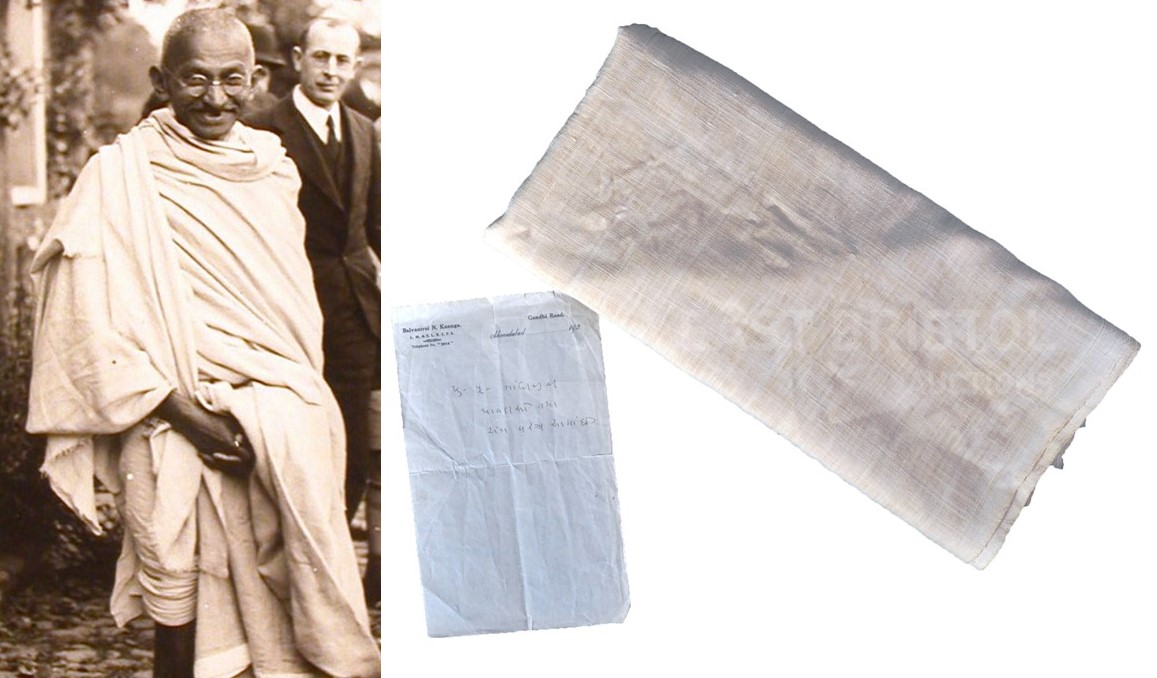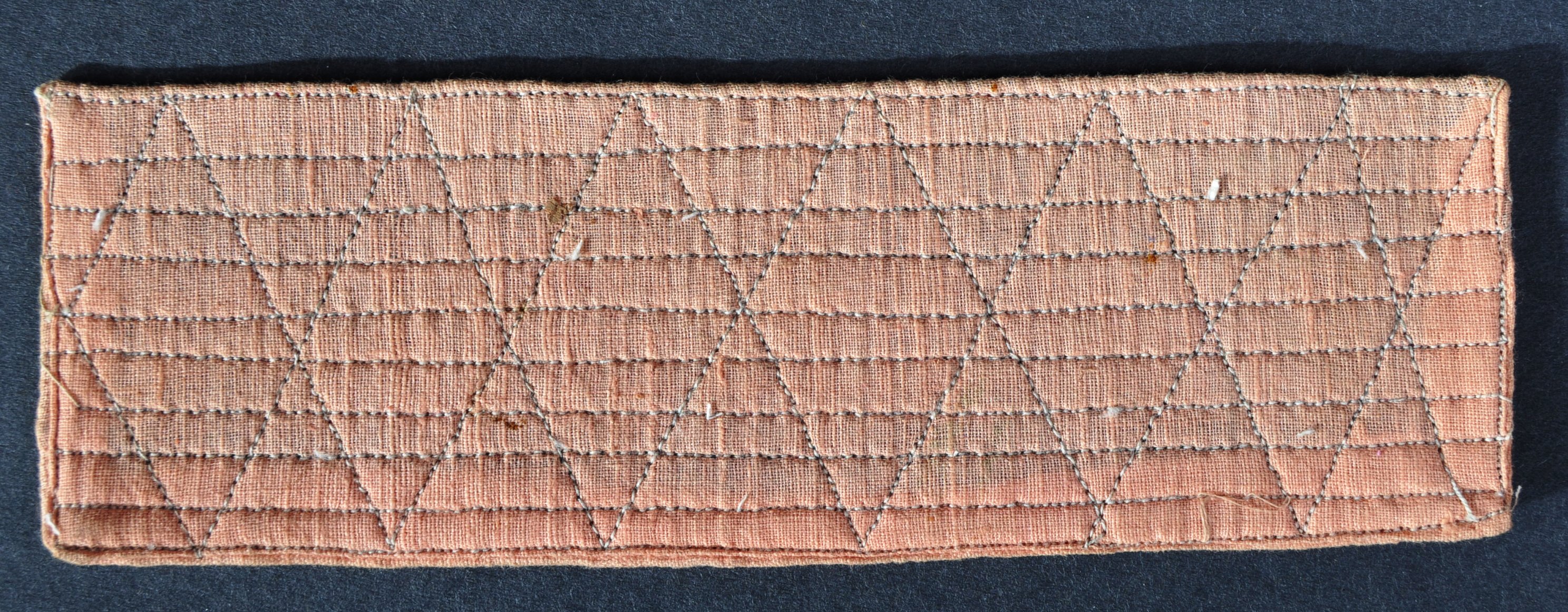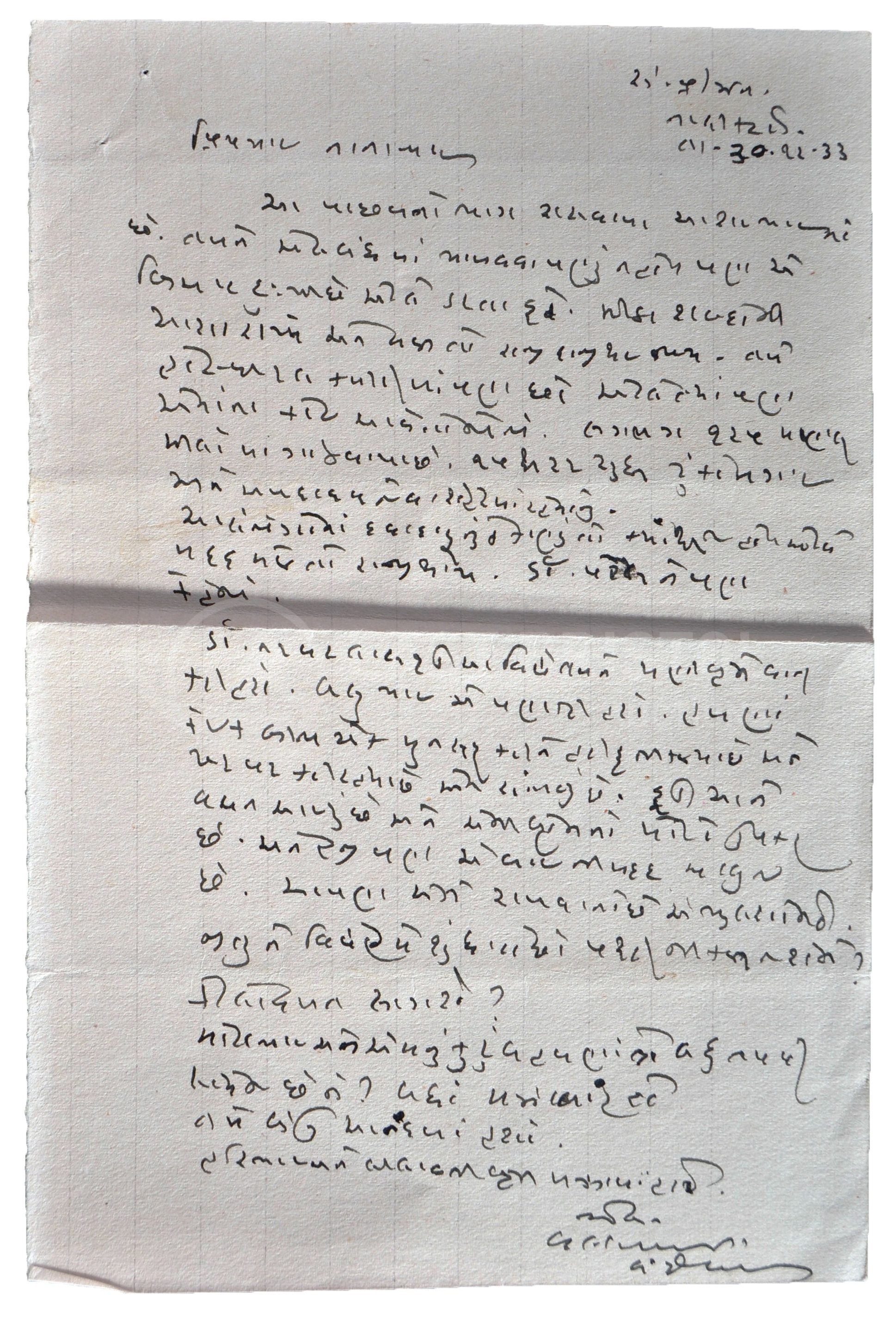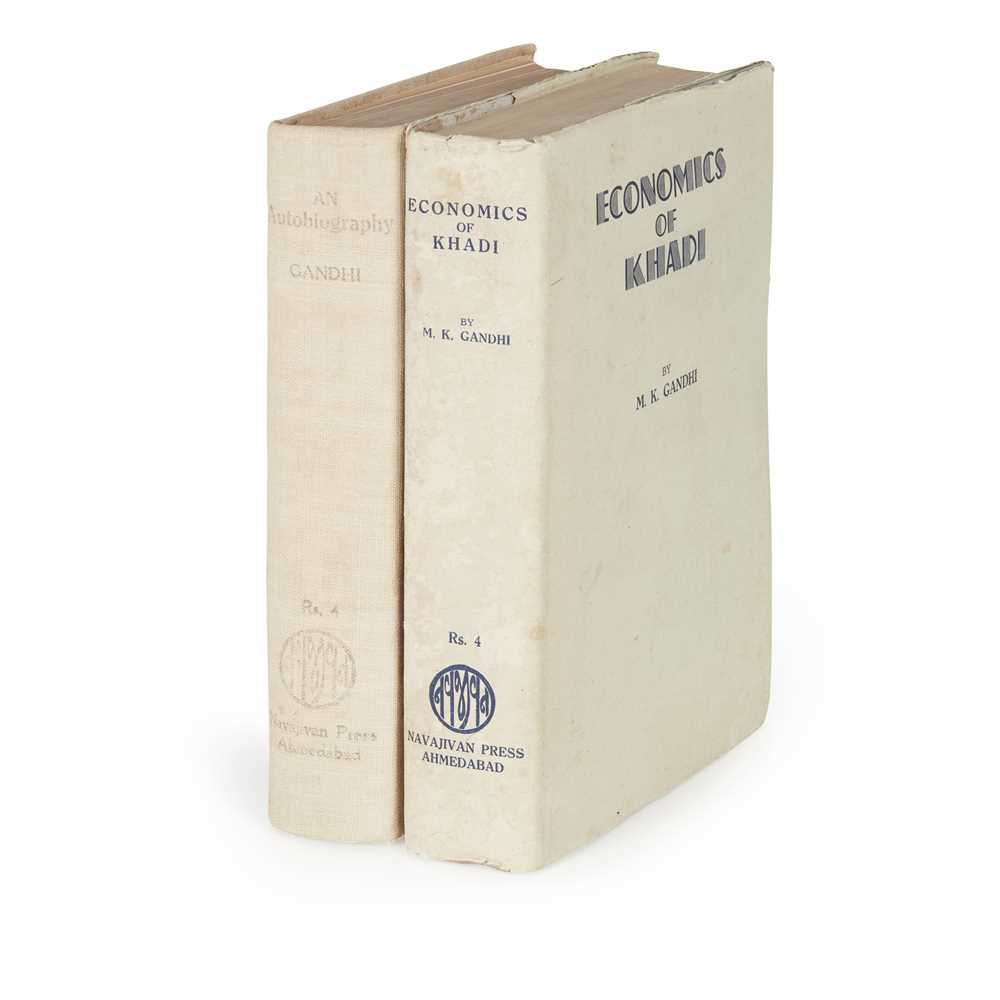Mahatma Gandhi (1869-1948) - Gandhi's personally made and worn Khadi loincloth. The cloth of hand woven white cotton construction, and embroidered to one corner ' Bapu ' (Gandhi). Supplied with an original c1930s note on headed Dr Kanuga (Gandhi's personal physician) stationery which reads "clogs and cloth of reverend Bapu are contained herewith." Folded. Some staining from age, and a central area of wear from use. Total size 79cm x 99cm History: On September 22, 1921, Mahatma Gandhi took the decision of shedding his suit and tie and donning a loincloth, which remained his attire until his death in 1948. Gandhi’s decision was inspired by his desire to completely boycott British goods and to popularise the idea of ‘swadeshi’ by making khadi more accessible to the poor. Khadi is a hand-spun and woven natural fibre cloth promoted by Mahatma Gandhi as swadeshi (self-sufficiency) for the freedom struggle of the Indian subcontinent, 'Khadi' term is used throughout India, Pakistan and Bangladesh. The first piece of the hand-woven cloth was manufactured in the Sabarmati Ashram during 1917-18. The coarseness of the cloth led Gandhi to call it 'khadi'. Gandhi's loincloth, along with his spectacles and sandals form part of his iconicity and images of him wearing such garments are deemed to be some of the most iconic images of the twentieth century. Provenance: from the collection of Dr Kanuga, Gandhi's personal physician. Mohandas Karamchand Gandhi (2 October 1869 – 30 January 1948) was an Indian lawyer, anti-colonial nationalist and political ethicist who employed nonviolent resistance to lead the successful campaign for India's independence from British Rule, and in turn inspire movements for civil rights and freedom across the world. Gandhi's birthday, 2 October, is commemorated in India as Gandhi Jayanti, a national holiday, and worldwide as the International Day of Nonviolence. Gandhi is commonly, though not formally, considered the Father of the Nation in India, and was commonly called Bapu (Father). Provenance - from the collection of Dr Balvantrai N. Kanuga, Gandhi's personal long-term physician and friend.
Mahatma Gandhi (1869-1948) - Gandhi's personally made and worn Khadi loincloth. The cloth of hand woven white cotton construction, and embroidered to one corner ' Bapu ' (Gandhi). Supplied with an original c1930s note on headed Dr Kanuga (Gandhi's personal physician) stationery which reads "clogs and cloth of reverend Bapu are contained herewith." Folded. Some staining from age, and a central area of wear from use. Total size 79cm x 99cm History: On September 22, 1921, Mahatma Gandhi took the decision of shedding his suit and tie and donning a loincloth, which remained his attire until his death in 1948. Gandhi’s decision was inspired by his desire to completely boycott British goods and to popularise the idea of ‘swadeshi’ by making khadi more accessible to the poor. Khadi is a hand-spun and woven natural fibre cloth promoted by Mahatma Gandhi as swadeshi (self-sufficiency) for the freedom struggle of the Indian subcontinent, 'Khadi' term is used throughout India, Pakistan and Bangladesh. The first piece of the hand-woven cloth was manufactured in the Sabarmati Ashram during 1917-18. The coarseness of the cloth led Gandhi to call it 'khadi'. Gandhi's loincloth, along with his spectacles and sandals form part of his iconicity and images of him wearing such garments are deemed to be some of the most iconic images of the twentieth century. Provenance: from the collection of Dr Kanuga, Gandhi's personal physician. Mohandas Karamchand Gandhi (2 October 1869 – 30 January 1948) was an Indian lawyer, anti-colonial nationalist and political ethicist who employed nonviolent resistance to lead the successful campaign for India's independence from British Rule, and in turn inspire movements for civil rights and freedom across the world. Gandhi's birthday, 2 October, is commemorated in India as Gandhi Jayanti, a national holiday, and worldwide as the International Day of Nonviolence. Gandhi is commonly, though not formally, considered the Father of the Nation in India, and was commonly called Bapu (Father). Provenance - from the collection of Dr Balvantrai N. Kanuga, Gandhi's personal long-term physician and friend.




.jpg)



Try LotSearch and its premium features for 7 days - without any costs!
Be notified automatically about new items in upcoming auctions.
Create an alert